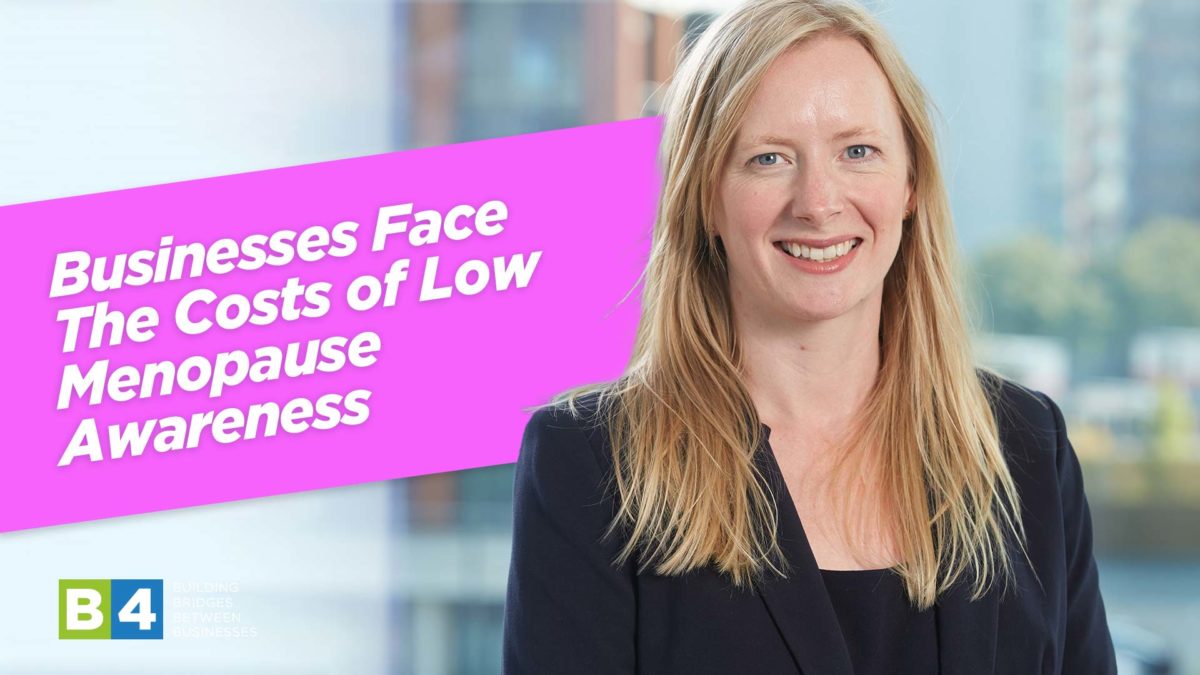
Businesses Face The Costs of Low Menopause Awareness
Low awareness amongst employers about the menopause is causing thousands of women each year to be absent from work and to quit their jobs, according to employment specialists at Irwin Mitchell.
Experts at the law firm say that the problem is likely to get significantly worse, particularly if employers continue to bury their heads in the sand about the issue.
The warning coincides with World Menopause Day on 18 October. It also comes at a time when many employers are already struggling to hang on to experienced staff post pandemic due to the so-called ‘Great Resignation’ – a phrase coined to refer to the large number of people choosing to leave their job since lockdown ended.
Jenny Arrowsmith, an Employment partner at Irwin Mitchell, said: “There are currently over a million job vacancies in the UK economy and in certain sectors there is a huge skills gap. Surely the last thing these organisations need is for women to be leaving as a result of their employer’s lack of understanding or support for how menopausal symptoms can impact them in work.”
Menopause affects all women at some point in their life, typically between ages 45-55.
Around 80% of women who are peri-menopausal or menopausal have symptoms including loss of confidence, disrupted sleep, anxiety, poor memory, joint and muscle pains, hair and skin changes, headaches / worsening migraines as well as the more commonly reported hot flushes. Those symptoms impact on all aspects of life and can significantly affect a woman’s physical and psychological wellbeing.
Symptoms lead to one in 10 women leaving their roles*. Many others feel disengaged or less productive or have time off work because of their symptoms.
Gaele Lalahy, chief operating officer of Balance, an innovative app designed to help women monitor menopausal symptoms and seek expert advice, says: “It is shocking that 12% of women resigned because of perimenopausal and menopausal symptoms. When you consider the menopause affects around 52% of the population, it is clear that businesses cannot ignore this issue any longer.”
Jenny Arrowsmith added: “Employers that choose to side-line menopause as a ‘women’s issue’ rather than a business issue will quite simply lose out.
“Menopausal women are the fastest growing demographic of the workplace. Most women are impacted with symptoms but 25% of women are seriously impacted. They may be unable to reach their full potential without the right support when its needed and this contributes to women leaving their jobs. Employers owe a duty to their female employees to do more to support and would reap the benefits from doing so.
“A good first step is to commit to understanding and communicating how the menopause impacts and what support would help. It’s helpful to appoint menopause ‘champions’ who can open up discussions, develop suitable policies and advocate for adjustments to minimise the impact in work for affected women.
“Signposting where your staff can find reliable information about the menopause and HRT is also something that can easily be done.
“Many organisational changes are free and relatively easy to implement. For example, workplace characteristics that make symptoms worse include: high temperatures, poor ventilation, humidity, no access to quiet or restful spaces, noise, dryness in the atmosphere and a lack of natural light.
“It’s important for businesses to think about how they can overcome these by, for example, providing breakout areas that offer quiet places to work in open plan offices, cold water stations and desk fans.
“If businesses take the time to understand how the menopause is affecting individual employees, rather than assuming that everyone needs the same thing, you’ll stand a much better chance of retaining the experience, knowledge and support your organisation needs.”
In July this year, a cross-party inquiry into the treatment of women going through the menopause was launched looking into announcement whether legislation goes far enough to address discrimination in this area.
More in Education

Stephen Clarke: Leading the Way at the ATOM Festival of Science...
Stephen Clarke, our Principal at Cherwell College Oxford, is not only a distinguished leader and former British diplomat, but also a passionate advocate for science and education. As the Chairman of ATOM Festival of Science & Technology, Stephen plays a pivotal role in bringing world-class scientific discussions and innovations to the heart of Abingdon. Stephen’s leadership ensures that the festival remains dynamic, inclusive, and engaging for people of all ages.

The Story Museum: Bringing Stories to Life in Magical Ways
The Story Museum is no ordinary museum. Nestled in the heart of Oxford, this unique, immersive space is dedicated to celebrating the power of storytelling in all its forms. Whether through interactive exhibitions, live performances, or creative workshops, The Story Museum is on a mission to enrich lives—especially young lives—through the magic of stories.

Unleash Your Potential: AI & Innovation Summer Camp at Cherwell College...
In an ever-evolving world where innovation drives progress, equipping oneself with cutting-edge skills becomes paramount. Cherwell College Oxford proudly presents its AI & Innovation Summer Camp, a transformative journey designed to empower young minds with the tools and insights needed to thrive in the digital age. Here’s why this programme is a must for aspiring innovators:
From this author

Pioneering planning scheme shortlisted for economic growth award
An exciting planning project in the Vale of White Horse has been recognised by being shortlisted for an industry award.

Pioneering Careys Construction Campus to be piloted at Oxford North
Oxford North, the new £700 million innovation district in Oxford, is to welcome Careys Construction Campus to provide free, flexible on-site ground working construction training which will guarantee an offer of an interview on completion of the training and boost jobs and talent in the industry.

Projects at Nicholsons
Nicholsons has built a strong reputation for delivering exceptional landscaping and forestry projects across a diverse range of clients. From small private domestic gardens to large-scale commercial developments, the company continues to push the boundaries of creativity and sustainability in landscape design.


